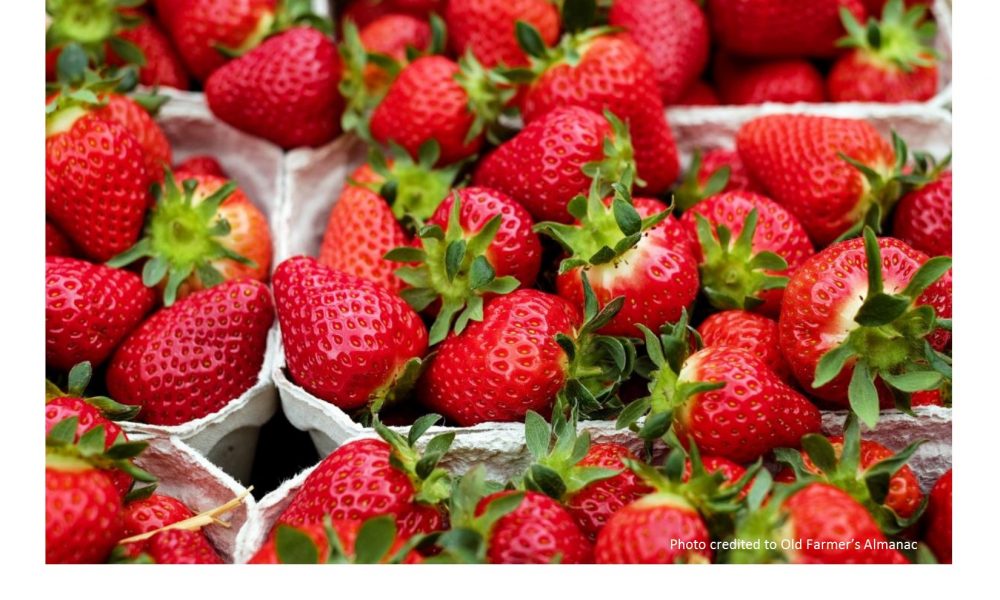
WHAT’S COOKING
At the market: A perfectly ripe strawberry is bold red, shiny, firm, and has a little green cap attached. The berries should be dry to the touch and free of any traces of mold.
Kitchen tips:
Strawberries don’t need elaborate storage at home. Leave them unwashed before storing; just place in an open paper bag and refrigerate them. They’ll last a few days.
Should you find yourself with underripe berries, set them on top of your refrigerator and cover them loosely with plastic wrap. Let them sit there overnight, and they’ll get sweeter. To prepare, wash first, then hull. That way you won’t wash flavorful juices away.
Accent on enjoyment: A good strawberry needs no embellishing. But strawberries jingle so well with other flavors.
Fresh Strawberries with Balsamic Vinegar
2 cups fresh strawberries
1 tablespoon balsamic vinegar
Rinse berries, Then hull or use a sharp paring knife to remove the caps. Toss with vinegar and serve at room temperature or slightly chilled in wine glasses or tiny dessert bowls.
BRAN, WHEAT
First in Fiber – 60 calories per 1/4 cup
If you’re looking for a nutrient-rich food that alleviates digestive woes, wheat bran probably is what you want.
A quarter cup of bran is loaded with fiber, iron, and potassium; is low in sodium, and is a fine source of B vitamins. It even has a nice amount of protein.
One of the most impressive successes has been in the treatment of diverticular disease, a digestive disorder that commonly occurs as we age. Prescribed 2 teaspoons of bran three times a day to patients. Bran also has a remarkable success rate for alleviating constipation and works wonders for some patients with irritable buwelta syndrome. (Nening AN. By P H & J B H)*






